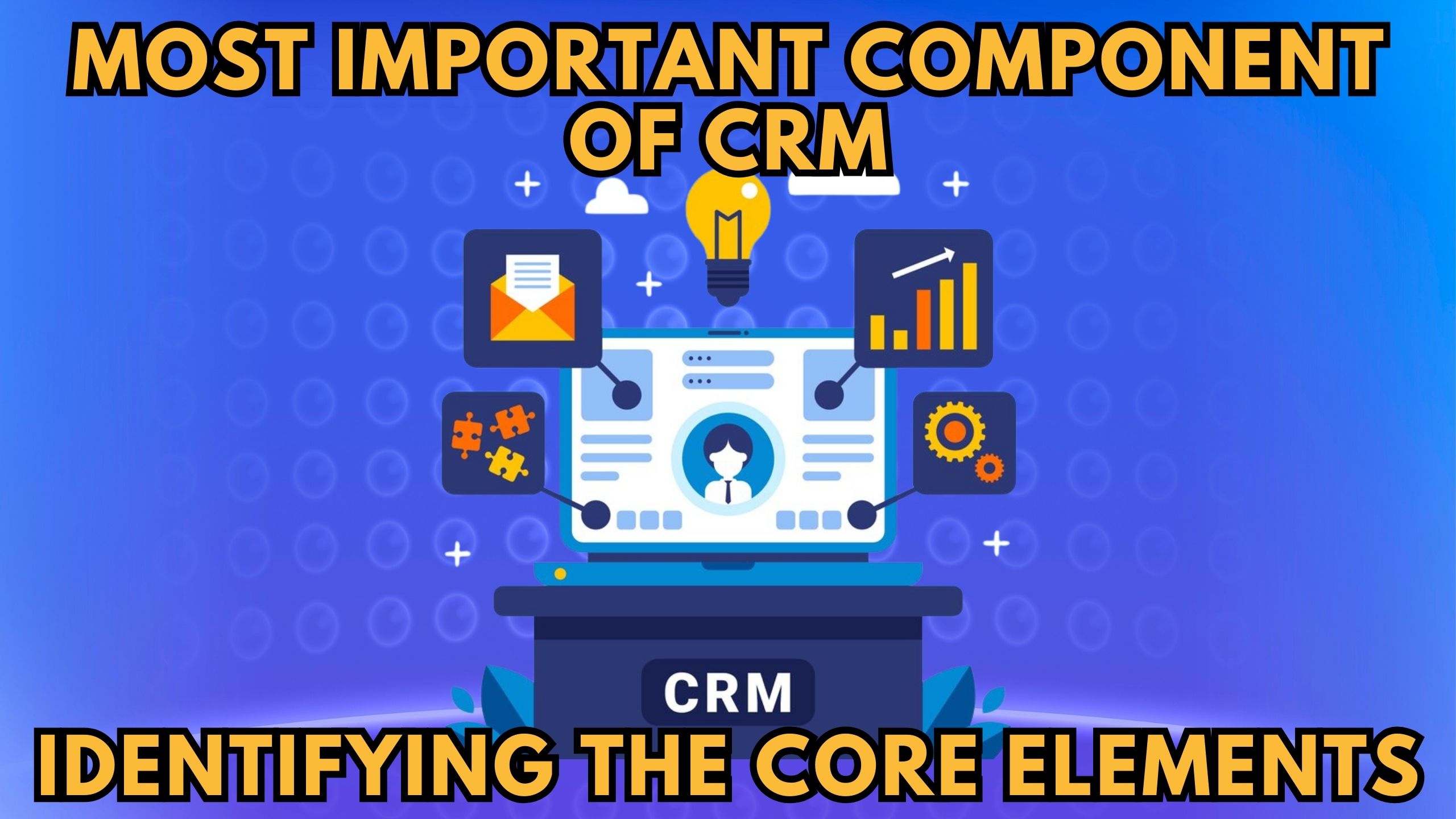Most Important Component of CRM: Identifying the Core Elements
- Proposal Software Customer Relationship Management


Most Important Component of CRM: Identifying the Core Elements
Customer Relationship Management (CRM) systems are the backbone of modern businesses, playing a pivotal role in managing interactions with customers and driving overall growth. In this in-depth exploration, we unravel the intricacies of the most critical components of CRM, shedding light on their significance and the profound impact they have on enhancing overall business performance.
1. Data Centralization: The Foundation of CRM
At the heart of any effective CRM system lies the centralization of customer data, acting as the foundational pillar for a comprehensive understanding of customer interactions. Salesforce exemplifies this by providing a robust platform that consolidates customer information, interactions, and transactions. This centralized approach facilitates a holistic view of customers, fostering personalized interactions, and empowering businesses to make informed decisions based on a unified dataset.
2. Automation for Enhanced Efficiency
Automation stands out as a vital and transformative component, streamlining repetitive tasks and workflows that would otherwise consume significant time and resources. HubSpot CRM is a prime example, excelling in automating various aspects of customer interactions, from email responses to lead nurturing. By reducing manual efforts, businesses can redirect their focus towards strategic initiatives, ultimately improving efficiency, and enhancing overall productivity.
3. Customer Analytics for Informed Decision-Making
Understanding customer behavior is pivotal for tailoring strategies to meet their evolving needs and expectations. Zoho CRM integrates robust analytics tools, providing valuable insights into customer preferences, purchasing patterns, and engagement metrics. Armed with this information, businesses can make data-driven decisions, refine their approaches, and stay ahead of market trends, ultimately fostering stronger customer relationships.
4. Integration Capabilities for Seamless Operations
The ability of a CRM to seamlessly integrate with other business tools is crucial for ensuring streamlined operations across various departments. Pipedrive stands out with strong integration capabilities, allowing businesses to connect their CRM with a myriad of applications. This integration not only streamlines processes but also ensures data consistency, providing a unified platform for comprehensive business management.
5. Customization for Tailored Solutions
Recognizing that every business is unique, an effective CRM should offer robust customization options to cater to specific needs. Insightly places a strong emphasis on customization, allowing businesses to tailor their CRM to their particular requirements. From custom fields to personalized workflows, this adaptability ensures that the CRM aligns perfectly with the intricacies of the business, optimizing its effectiveness and relevance.
Conclusion
In conclusion, the most important component of CRM is the synergistic integration of its core elements. Data centralization, automation, customer analytics, integration capabilities, and customization collectively form a powerhouse that drives customer-centric strategies, enhances operational efficiency, and fosters sustained business growth.
Optimize Your CRM Experience with Subscribed.fyi
Explore exclusive deals on leading CRM and SaaS tools at Subscribed.fyi. Sign up for free today and unlock savings on 100+ SaaS tools, with perks totaling over $100,000 per year. Simplify your subscription management, compare tools, and make informed decisions about your CRM and SaaS stack. Elevate your business with Subscribed.fyi!
Relevant Links:








